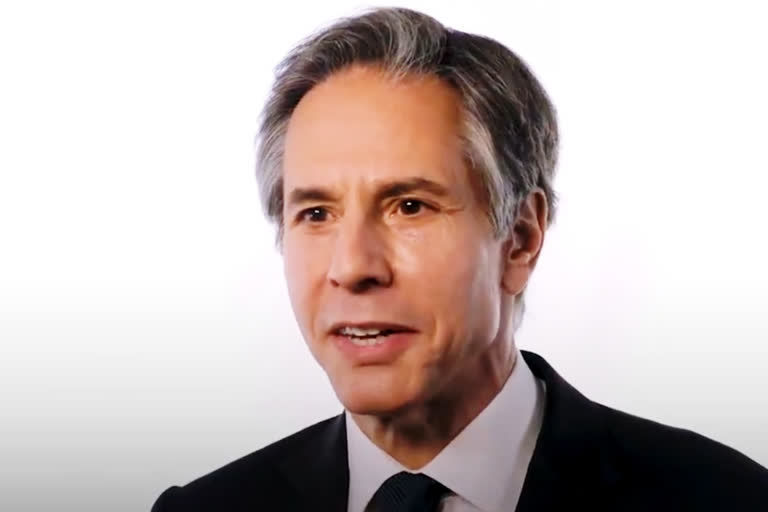New Delhi:Ahead of the United States Secretary of State Antony Blinken's arrival in New Delhi on Wednesday to attend the G20 Foreign Ministers meeting, a foreign policy expert Tuesday said that given the major power contestation around Ukraine, the visit will be more about global order than Indo-US bilateral ties.
Blinken will arrive in New Delhi on March 1 to participate in the G20 Foreign Ministers’ Meeting which will focus on strengthening multilateralism and deepening cooperation on food and energy security, sustainable development, counter-narcotics, global health, humanitarian assistance and disaster relief, and gender equality and women’s empowerment.
He will meet with Indian government officials and civil society to reaffirm India-US's strong partnership. "India, US relations are moving forward productively. They have seen a great strengthening over the last few years and the bilateral relationship is embedded in a wider Indo-Pacific framework, where India is engaging with the US not only bilaterally but also in a mini lateral format which is the Quad," Prof Harsh Pant, Vice President for Studies and Foreign Policy at Observer Research Foundation (ORF) told ETV Bharat.
He pointed out that Blinken's visit this time is for the G20 FMM meeting. "Given the major power contestation around Ukraine, the visit will be more about global order than Indo-US bilateral ties. Certainly, he will underscore the Biden administration's commitment to strengthening the India-US relationship," said Pant.
Blinken's visit comes at a very crucial time as the Russia-Ukraine war completes one year. It is pertinent to note that Russia-Ukraine has remained high on the agenda of any bilateral meets and engagements so far. The whole world is staring at the possibility of ending this conflict as soon as possible. And India's G20 presidency will perhaps pave the path towards some solution to such global issues.
Recently, the tussle between Russia-China, and the West over the Ukraine conflict was seen at the G20 Finance Ministers meeting in Bengaluru that ended with no communique due to the divide and differences over the conflict in Europe.
